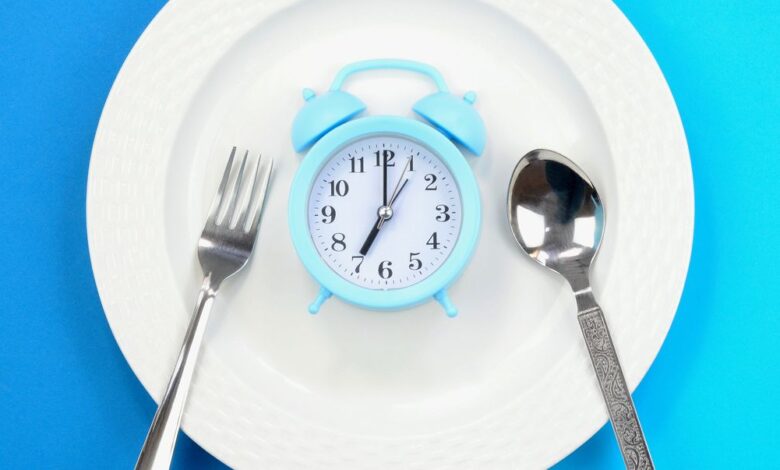Is Skipping Breakfast Bad for Your Health?

You’ve probably heard it more than once: Breakfast is the most important meal of the day, and it’s important to take time to fit it in amid a busy schedule. Many have a hard time doing so, even as the last year has granted most more time and access to their kitchens during a morning routine. But others are enticed by an underlying promise stemming from recent research, that skipping breakfast entirely may boost weight management efforts — particularly those who are attempting to lose weight by adopting intermittent fasting.
But does weight reduction always equate to overall better health? A 2014 trial brings this into question, as findings reveal that although skipping breakfast did lead to weight loss, it was at the expense of increased total cholesterol levels compared to the others who ate breakfast. Researchers from the U.S. Department of Agriculture Economic Research Service found that although skipping breakfast can reduce overall daily caloric intake, it also results in decreased diet quality. One of the most recent reviews on this subject published in the British Medical Journal touted for its suggestion that “the addition of breakfast might not be a good strategy for weight loss” also noted inconsistent results and poor trial quality, further indicating that there is no “evidence to support the notion that breakfast consumption promotes weight loss, nor that skipping breakfast leads to weight gain.”
Although research states that skipping breakfast may lead to a slight decrease in caloric intake, the trend is clear that this does not automatically impact your overall health. As a Registered Dietitian, I’ve found in practice that what you choose to actually eat for breakfast can have the most fundamental impact on your overall health. Eating a good quality breakfast may be more important than having or not having breakfast at all. If you’re consistently reaching for sugary cereals, pastries, or heavily processed frozen meals on a daily basis, then breakfast may not be as nutritious for you. The question around skipping breakfast, however, is always discussed in a yes-or-no fashion; in reality, it’s not so simple.
A balanced breakfast — one that is stacked with fiber (like better cereals!), protein, healthy fats, coming together in a delicious dish — will revolutionize your day, especially if you are currently skipping it and still find yourself struggling to prioritize a healthy lifestyle. Many traditional breakfast items are packed with sugar, refined carbohydrates, sodium, and trans fats; this type of meal can cause an immediate blood sugar spike and a subsequent crash throughout your morning. When done right, though, taking the time to eat breakfast can aid your health by helping you build a foundation for better habits throughout the entire day.
Likely, you’ve landed here because you’re considering cutting breakfast out to boost your dieting efforts. Your motivation may be to promote weight loss or cut back on sodium or added sugar. Whatever the case may be, you can eat still breakfast while doing all of those things and more. Instead of stressing over whether you should or shouldn’t eat in the morning, think about upgrading some of your favorites to make breakfast a nutritious super start to your day.
What are the benefits of eating breakfast?
Just as there is emerging research on potential benefits associated with fasting overall, there’s a whole suite of data suggesting that eating a balanced breakfast as frequently as possible will help you maintain better health. Some of the most impressive potential benefits include:
- Breakfast may help you eat a better lunch. A 2014 Nutritional Journal pilot study found that breakfasts high in protein can prevent cravings or tendencies to overeat at lunchtime. A modestly-sized breakfast that packs in good protein may help those who are having issues with portion control at lunch; skipping in the morning may cause you to overcompensate due to sustained hunger in the afternoon. In fact, research suggests that eating a piece of fruit or another small snack between breakfast and lunch is often something that those who successfully maintain their weight do regularly.
- Breakfast may help maintain blood sugar levels. A 2019 trial’s results, published in the American Journal of Clinical Nutrition, illustrated that men who skipped breakfast had irregular glycemic responses throughout the rest of the day, and ultimately had a higher blood sugar average than those who ate breakfast. A balanced breakfast may help keep blood sugar levels steady, which can impact energy and focus throughout the day. Breakfast is even more crucial for those who may be pre-diabetic or dealing with type 2 diabetes in this regard, too. A 2013 study found that those who skipped the meal had as much as a 20% increase in risk for type 2 diabetes as irregular blood sugar spikes that occur after breaking a 16-hour (or longer!) fast can inevitably train the body to develop insulin resistance over time.
- Breakfast may negate some residual stress throughout the day. A 2014 Physiology & Behavior study suggests that women who skipped breakfast often demonstrated higher cortisol levels (a stress hormone) as well as blood pressure throughout the day. Both groups in this study reported similar amounts of chronic stress overall, but the lack of a formal breakfast meal notably influenced those two factors in the end.
Like most other research on breakfast, these data-driven studies fail to define what kind of breakfasts lead to these added health benefits. The quality of your breakfast determines its final boost to your health, and breakfast is truly an investment in laying the foundation for the day. You’re setting up your body to feel energized and satisfied with a meal that is high in protein and fiber, not one that’s going to lead to a sugar crash or make you more likely to overeat later on. To reap any potential benefits above, as well as more we didn’t list, try to organize your breakfast to tap into healthy staples you may already have at your fingertips.
Why breakfast can inspire other healthy habits:
Most notably, the American Heart Association reported in 2017 that those who eat breakfast regularly tend to have lower rates of cardiovascular disease and type 2 diabetes, high cholesterol, high blood pressure, malnutrition and tobacco use. We know breakfast is far from a magic bullet for existing health issues, so how exactly can scientists source this trend back to breakfast?
Getting up in the A.M. to routinely make a nutritious meal could potentially give you the means to kickstart another new healthy morning routine. Those who often skip breakfast say they’re not hungry enough to sit down for a meal; but if you’re finding yourself with enough time to go on a morning walk or to complete a morning meditation, you may change your tune. Those who can’t imagine squeezing a workout in any given day could feel that way because they’re not eating a balanced, fueling breakfast, in addition to other factors. And eating breakfast could inspire more than just physical activity in the morning; it may motivate you to lead a more purposeful morning routine that prepares you for your upcoming day.
If you regularly exercise, listen up: Your performance (and fitness) may suffer for skipping breakfast in the long run. A 2018 Endocrinology and Metabolism study found that eating breakfast before a workout increased the rate at which carbohydrates were burned while upping how fast the body digested food after that workout as well — meaning, a balanced breakfast increased metabolism beyond the workout session. You may feel more energized and better equipped to workout faster, harder, and longer, so to speak, if you choose to eat breakfast prior to getting a routine started.
Can breakfast kickstart your metabolism?
A standard American breakfast can potentially be overloaded with sugar, refined carbohydrates, saturated fat, and sodium, making this meal not the best for your overall health. But if you’re eating a well-balanced meal packed with lean protein, healthy fats, filling fiber and a slew of other nutrients, you can expect your metabolism to be working on digesting and gleaning energy from breakfast all morning long. Combined with a nutritious lunch and dinner, you’ll find that your metabolism will be optimized and right where it needs to be.
Recent research suggests that breakfast may not have as strong of an influence on metabolism speed or appetite regulation throughout the day. But when you sleep, your basal metabolic rate slows down, and waiting long into the day to break the fast may impact how your body responds to traditionally heavier meals like lunch and dinner. If you don’t have time for a healthy breakfast 24/7, that’s understandable — skip it or choose something quick and light, and reach for more protein and fiber at lunch.
Can skipping breakfast cause you to gain weight?
Scientifically, no, skipping breakfast doesn’t cause you to gain weight outright. But the reason this age-old question is still being debated is that everyone has different hunger cues — and skipping breakfast may prompt you to overeat at another meal.
If you don’t normally skip breakfast and start doing so, you may find yourself feeling “hangry” around bedtime or even earlier in the day, which makes it harder to refrain from oversized portions or cravings for sugary and refined carbohydrate foods. Ultimately, skipping breakfast can lead to chaos for those whose hunger hormones have regularly been influenced by a meal every morning, and your body will need to make up for the deficiency elsewhere.
Recent research is largely divided here; some teams have found that their experiments yielded weight loss but at the cost of elevated cholesterol levels, whereas previous research suggests that behavioral tendencies associated with skipping breakfast caused a significantly higher risk of obesity. But one thing is clear: If you’re used to eating breakfast, and are attempting to cut it out to promote weight loss, it may backfire on you in the long run.
The bottom line:
Everyone has different dietary needs that suit their lifestyle, and there is no one-size-fits-all approach to health and nutrition. But the debate around whether or not breakfast is influencing weight or any other aspect of health fails to address what breakfast actually entails. Ideally, you’re able to eat a breakfast that’s high in protein, fiber, healthy fats, and is largely free from over-processed items that are high in added sugar and sodium.
Eating a breakfast that is solely made up of processed, convenience items — think frozen sandwiches or sugary cereals — will likely spike your blood sugar and cause a dreaded crash routinely by lunch. You’ll likely then reach for items to help you feel more alert and satisfied, which can lead to unchecked portions or poor dietary choices later on in the day. But cutting out breakfast “cold turkey” may also lead to fatigue, moodiness and unstable hunger hormones. Instead of thinking about cutting things out via restriction, focus on what you can add to your morning routine to create abundance and fuel for your body.
There are countless documented and burgeoning benefits to breakfast that can aid your health. A balanced breakfast can help keep you energized, productive, and satiated throughout your morning, regulating hunger hormones in the long run. In the end, eating a balanced breakfast may promote other productive morning routine habits as well, like staying hydrated to begin your day on a positive note and finding time to exercise in the morning. At the very least, investing more time and effort into making breakfast a must-do every single morning can help you find an extra moment for a habit you’ve yet to explore — and that’s an investment well spent.
Hungry for More? Our Ultimate Breakfast Guide Is Here
This content is created and maintained by a third party, and imported onto this page to help users provide their email addresses. You may be able to find more information about this and similar content at piano.io
Source link





